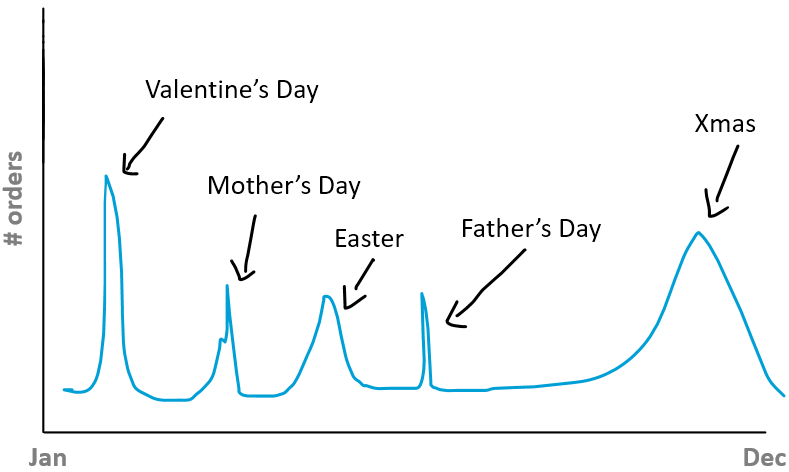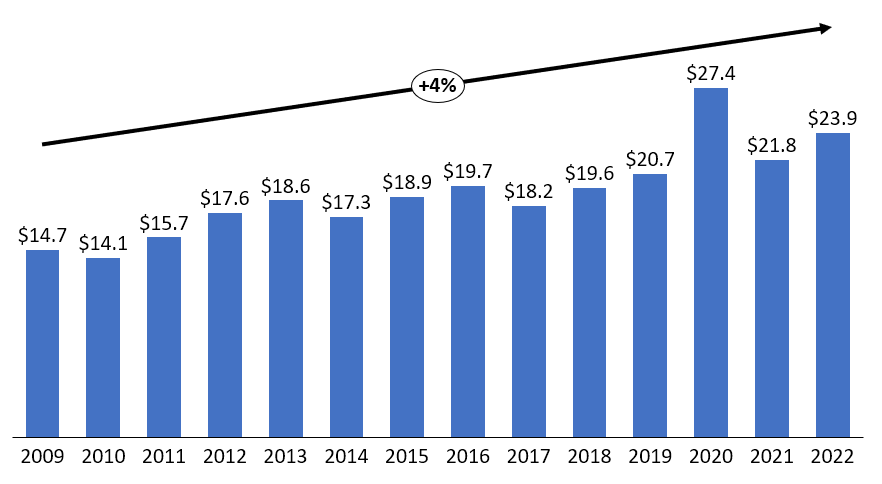Valentine’s Day, Mother’s Day, Father’s Day. These days, to name a few, occupy an important place in the modern calendar - they give us an opportunity to pay attention to relationships with important people in our lives. Their histories are varied (some more innocent than others) but regardless of how they came to be, they’re now modern traditions and significant cultural signposts in the year.
Should love cost money?
Such days are expressions of love for significant others or parents. I’d like to explore their meanings in the modern world, where the sentiment has shifted from love to commercial activity. No doubt lovers look forward to Valentine’s day, but so do businesses. In fact, some businesses wouldn’t survive if not for these days scattered throughout the year. Businesses need to make money and exploiting an opportunity is fair game, but that sometimes results in encouraging consumption only for the sake of consumption.
The commercial calendar
I didn’t realise how much even larger businesses need these ‘commercial days’ until I worked on a project for a relatively large business that relies on them. The graph of order volumes looked a bit like this:

Although the spikes only last for a very short period of time, they can’t be ignored. US consumers spent around 24 billion dollars on Valentine’s Day this year, and this has been increasing by more than 4% YoY over the last decade.

Not all of this is bad - going out to a restaurant is a nice break from monotony, and in many cases won’t be additional spend (it likely replaces a restaurant meal around that time of the year). Smaller restaurants legitimately focus on these days as opportunities to even out losses from mid-week lulls.
Pressure and entitlement
The internet and physical spaces are littered with adverts in the run-up to these days. Adverts build up an expectation that’s usually then fulfilled, creating a feedback loop that creates societal pressure. We often don’t realise this fuels the fire of entitlement to gifts, and in the process we litter the environment with small trinkets of appreciation.
Should Xmas be cancelled?
If these days have become cultural signposts, can we extend the logic to other holidays? Where do we draw the line? Christmas is an obvious example - it’s generally celebrated as a secular holiday by most in the West. Should we treat it any different?
I think it should be treated differently - Christmas is a much older tradition and gift-giving has a religious significance tied to the holiday.
To Christians, the gifts given at Christmas are symbolic of the tributes made to the baby Jesus by the Three Wise Men after his birth during the story of the Nativity. - NG
Solutions
It’s a choice to celebrate some days and not others. The days I mentioned above might resonate more with certain people - and that’s great, they’re likely to exchange higher quality gifts that come from a place of meaning.
A key part of the solution is to untie unneeded, thoughtless consumption from these days. Sometimes buying a cheap gift is the easy way out, but there are many other things we can do that show appreciation for loved ones if choosing to celebrate these days:
- Clearing commitments to spend quality and quantity time with loved ones
- Creating memories - again, these don’t need to be tied to thoughtless consumption
- Giving thoughtful gifts, rather than single-use trinkets
I’m not against giving gifts, but they should be thoughtful and given from a place of love, not obligation. Gift-giving is an important part of many traditions, as we saw with Christianity. Similarly, my own tradition encourages people to exchange gifts. A famous hadith reads:
“Exchange gifts and you will love one another.”